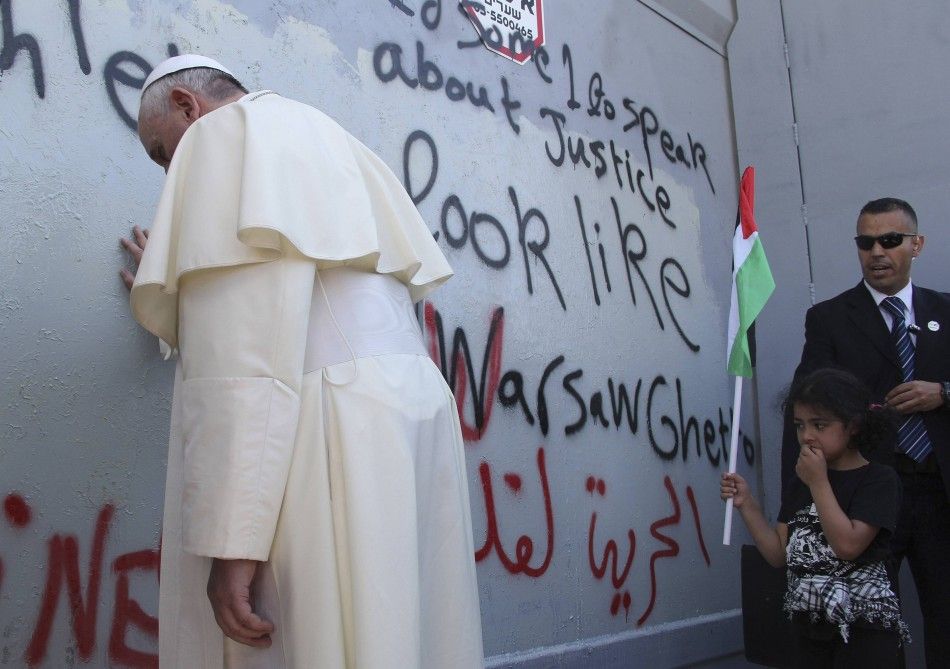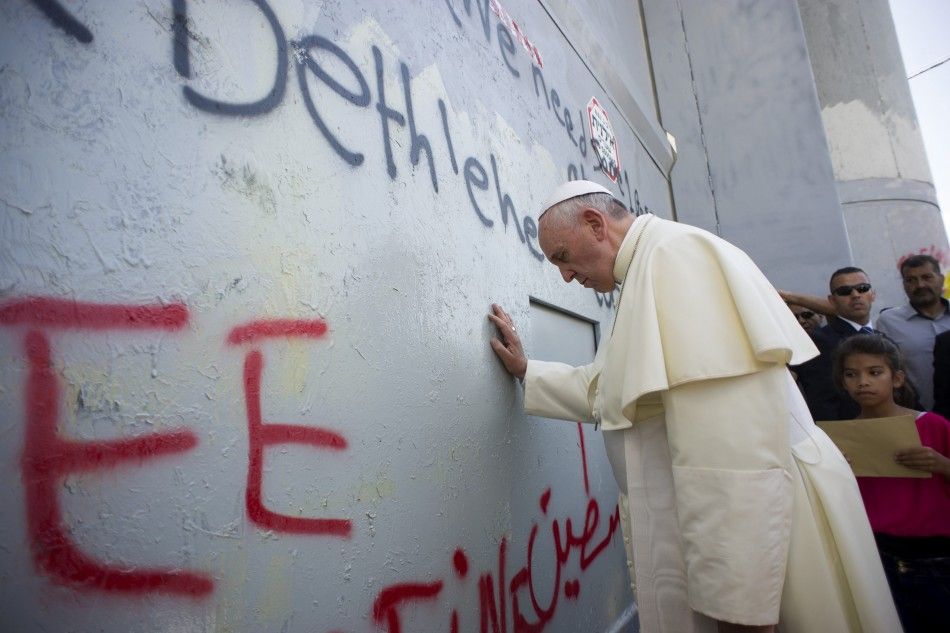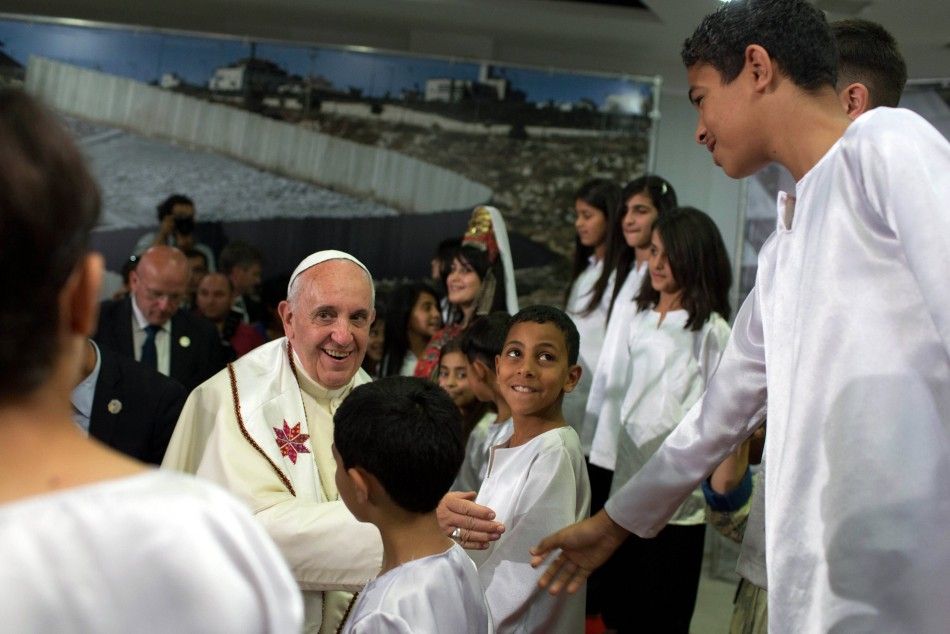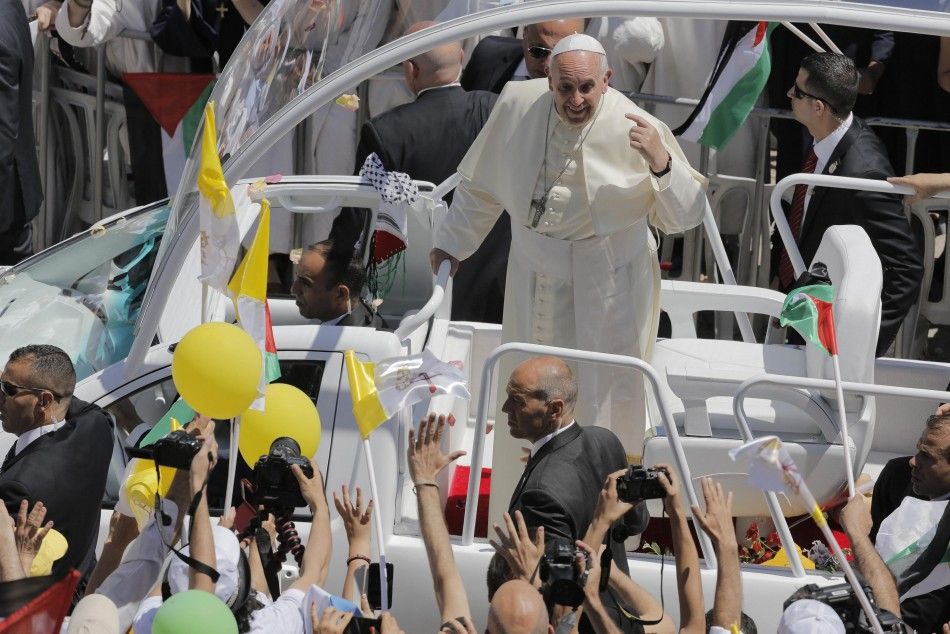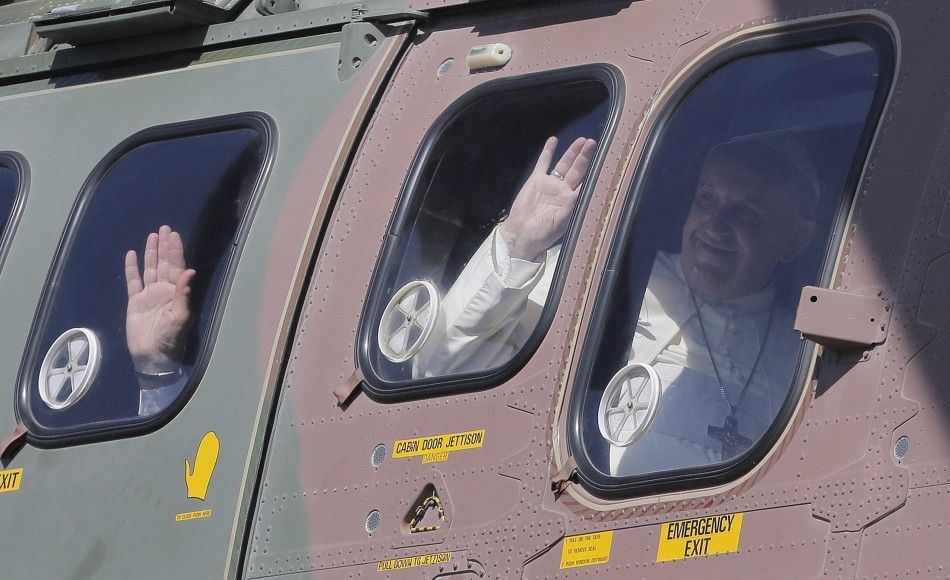Palestinians in Awe, Cheers Pope Francis Who Stopped and Prayed at the Bethlehem Wall (PHOTOS)
Palestinians were in awe on Sunday and couldn't believe what just happened before their very eyes. Pope Francis, leader of the world's 1.2-billion strong Roman Catholics, stopped his motorcade between scheduled events in Bethlehem to pause and pray at the wall separating Bethlehem from Jerusalem.
Known as The Wall, the Israeli West Bank barrier was created to protect Israel's citizens from the Palestinians' violent uprising against Israeli rule. It was built a decade ago and yet to be fully completed. Upon completion, the barrier's total length will be 700 kilometres (430 mi). As of 2012, 439.7 km (273.2 mi) of barrier, representing 62.1 per cent, have been built.
The wall has become a symbol of repression to Palestinians throughout their divided state.
On his way from the Presidential Palace in Bethlehem to Manger Square, Pope Francis asked the driver of his Popemobile to stop, then went down and stood beneath an Israeli watchtower. In a move no pope has ever done, Pope Francis reached out and touched the metres-high concrete barrier.
Pope Francis lay his forehead on a section filled with graffiti saying "Free Palestine" and "Bethelehem look like Warsaw Ghetto."
"He got down from the Popemobile and walked up to the wall," Rev Federico Lombardi, the Vatican spokesman, said. "He remained there for some minutes, praying silently. He then touched the wall with his forehead."
Rev Lombardi noted he did not have an idea the pope will be stopping by the famed wall.
"I was not informed [of his plans to stop]. It was planned by him the day before ... It was a very significant way to demonstrate his participation in suffering ... It was a profound spiritual moment in front of a symbol of division."
Palestinians who had been fighting for a free state were moved and pleased with Pope Francis' respect and gesture.
"The fact that he came straight from Jordan is a sign that the Pope sees Palestine as a state," The Telegraph quoted Ilias Abdo, a Christian clergyman from Bethlehem. "That was a deliberate decision - it was not by chance. This is a political visit as much as a religious one. He is hinting at recognition of an independent Palestinian state."
"His arrival from Amman straight to Bethlehem, without going through Israel, is very symbolic for statehood. He's showing sympathy for the Palestinian people, who are besieged by the separation wall," George Zaineh, a Christian from Bethlehem, said.
During the mass in Manger Square, Pope Francis issued an invitation to Palestinian President Mahmoud Abbas and Israeli President Shimon Peres to meet at the Vatican to discuss peace between Israel and Palestine.
"I offer my home in the Vatican as the place for this encounter for prayer," he said. "Building peace is difficult but living without peace is a constant torment."
An Israeli foreign ministry spokesman, however, downplayed the pope's stopover at the wall.
"We had expected that the pope would make a human gesture. There's nothing political here," the spokesman said. "The Vatican has recognised Palestine as a state a long time ago, not that we liked at the time but it's a bit surprising that the Palestinians are making it sound as if it's something new. They are turning the visit into a whole propaganda stunt but that's what they do and the Vatican plays along with it and so be it. We will find the time to speak with the Vatican through diplomatic channels about this."
"Rather than have a head of state and head of the Catholic church come here and give his blessings, the Palestinians are turning his visit into a compilation of political grievances."
